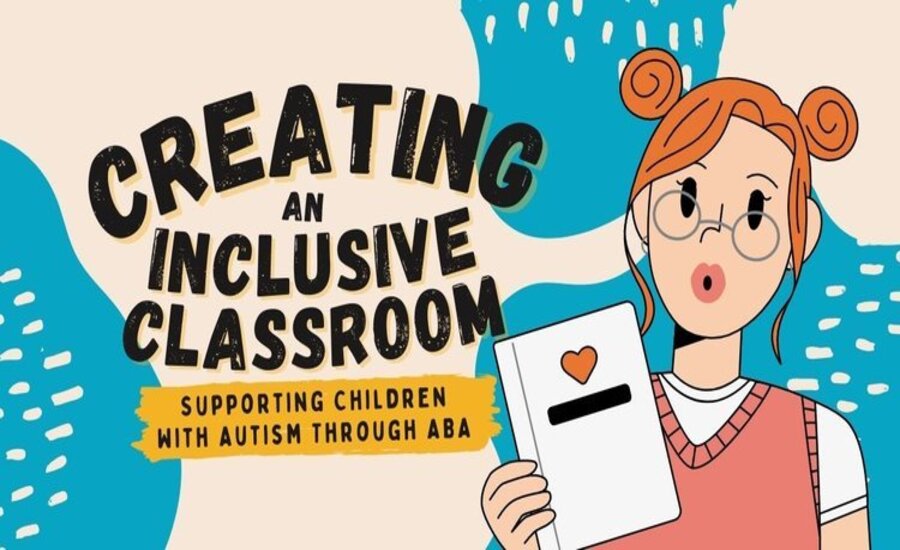Understanding the Role of Inclusion and Community Integration in ABA Therapy Services
Applied Behavior Analysis (ABA) is a method for comprehending and enhancing behavior. Fundamentally, ABA operates on reinforcement and behavior modification principles, which prove beneficial for children facing challenges like autism spectrum disorder (ASD). This therapy emphasizes breaking down skills into tasks to help children learn effectively in a structured setting with support.
Success in Move Up ABA hinges not on the practitioners but on the active participation of parents and caregivers. Parents who grasp the foundations of ABA can reinforce behaviors at home, ensuring consistency in their child’s learning environment.
The Significance of Parent Training in ABA
Parent training plays a role in ABA therapy. By providing parents with tools and strategies, they can continue supporting their child’s progress outside therapy sessions. Parent training empowers parents to apply ABA principles in scenarios and enhance their understanding of their child’s needs.
Parent training in ABA therapy usually includes educating parents on the basics of ABA, conducting assessments, creating behavior intervention plans, and teaching strategies to reinforce behaviors and discourage negative ones. Additionally, this training equips parents to observe and document their child’s behavior in settings, providing information for therapists.
Significance of Parent Training in ABA Therapy
Consistency Across Environments: Children benefit from consistency. By aligning strategies at home and during therapy sessions, children receive an approach to learning. This consistency ensures that children can grasp expectations and apply learned skills.
Enhancing Parent-Child Relationships: Parent training enables parents to interact effectively with their children. By applying ABA techniques, they foster interactions and strengthen bonds. This not only aids in managing behavior but also nurtures emotional connections and trust.
Positive Outcomes: Studies show that involving parents in their child’s ABA therapy results in improved outcomes for the child. Progress can be seen in communication abilities, social interactions, and everyday life skills, leading to life.
Empowering Parents: Managing the complexities of raising a child with ASD can be overwhelming for parents.
Parent training provides parents with the knowledge and skills needed to participate in their child’s therapy journey, empowering them and reducing feelings of helplessness. It also helps them advocate for their child’s needs.
Establishing a Support System: Parent training often involves group collaborations that create a sense of community among parents dealing with challenges. By sharing experiences and strategies, emotional support can be provided. Successful approaches can be highlighted for parents to apply.
Ways to Engage in Parent Training
Explore Available Resources: Numerous organizations and local support groups offer parent training programs on ABA techniques. Whether in your area or online, research options can help you discover programs or workshops.
Communicate with Your child’s ABA Team: discuss the possibility of parent training sessions with your child’s therapists. Many ABA practitioners are enthusiastic about involving parents in the process of providing advice and assistance.
Attend Workshops and Seminars
Look for opportunities that focus on ABA principles. Workshops offer hands-on experience that deepens understanding and allows parents to raise questions or address uncertainties.
Join Parental Support Networks: These groups offer information and encouragement. Connecting with parents enables the exchange of insights and experiences, often leading to the discovery of additional training options.
Commit to keep learning: The realm of autism support is constantly changing. Staying updated on the research, techniques, and educational opportunities is essential. Attending workshops and staying informed can help parents learn about practices in ABA and other therapies.
Stand up for your child. Understanding ABA principles empowers parents to advocate for their children effectively. This involves collaborating with schools, therapists, and professionals to create a learning environment that promotes their child’s growth.
Consistent practice is essential
The true impact of parent training shines through when strategies are consistently applied at home. Regular communication with therapists and dedicated practice of techniques can strengthen the benefits of ABA therapy.
Conclusion
Parent training in aba therapy services Maryland plays a role in enhancing interventions for children with autism. By equipping parents with knowledge and practical skills, they become advocates and pillars of support in their child’s path. By using strategies supported by trained professionals, children can thrive in an optimal environment. Families involved in the ABA process often observe not only improvements but also a more fulfilling and harmonious home life.






